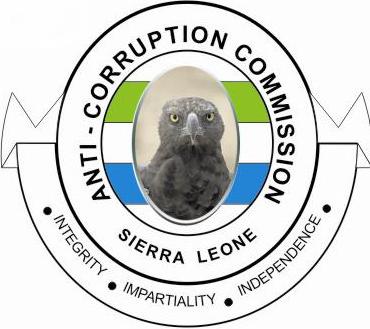By: Bernard Abass Kargbo – Public Education Officer, ACC.
Introduction
Whistleblowers or informants play a crucial role in combating corruption. They are individuals who expose and or report illegal or unethical activities they have experienced or participated in- it can be within Ministries, Departments, Agencies (MDAs) of Government or the private sector.
Therefore, whistleblowers/informants can be government officials, employees of private companies, or concerned citizens who witness corruption and choose to report or speak out against it. They often take steps to report activities to the appropriate authorities, such as reporting the activity of a supervisor of Government agency to the media or the Anti-Corruption Commission (ACC).
Section 77 (1) of the Anti-Corruption Act of 2008 as amended in 2019 gives public officials and members of the public the right to report suspected acts of corruption to the Commission.
Whistleblowers/informants play KEY role in identifying and uncovering corruption, fraud, waste, abuse, and other illegal activities that are hidden from public view. They risk retaliation, such as termination of employment, demotion, harassment, and legal action, for exposing such administrative malfeasances.
In Sierra Leone, corruption has been a major challenge to development and good governance. Whistleblowers/informants have helped to expose corruption scandals, leading to investigation and prosecution of public officials and private sector actors. For example, in 2018, a whistleblower exposed a corruption scandal involving the payment of Millions of Dollars in fraudulent contracts by the Government to a foreign company. This led to the dismissal and prosecution of several public officials involved in the said scandal.
Similarly, in South Africa, whistleblowers exposed a corruption scandal involving the misuse of public funds by the then President Jacob Zuma. This led to his resignation and prosecution. In Nigeria, whistleblowers/informants have also exposed corruption in the oil and gas sector, leading to the recovery of Millions of Dollars in stolen assets.
Whistleblowers/informants are critical in combating corruption because they provide a voice for those who may be afraid to speak out against it. They help to expose corrupt practices and hold public officials and private sector actors accountable for their actions. Whistleblowers/informants also play a remarkable role in building public trust in government and private institutions by exposing wrongdoing and promoting transparency and accountability.
Overall, the significance of whistleblowers/informants in combating corruption in Sierra Leone and Africa as a whole, cannot be overstated. They are instrumental in promoting good governance, protecting the public interest, and ensuring that public officials and private sector actors are held accountable for their actions.
Whistleblower/Informant protection
Whistle blowing is important in allowing people to come forward and denounce corruption and other illegal activities. The AC Act of 2008, as amended in 2019, did not only give protection to whistleblowers/informants, but also gives incentives as provided for under Section 81 (3) of the Act, which states that 10 percent of the money recovered from a matter reported by a whistle-blower or informant be given as Reward.
The ACC has very effective whistleblower/informant protection mechanisms:
1. Strict legal safeguards: Strict legal safeguards are in place to protect persons who disclose illicit acts from reprisals. This includes whistleblower/informant laws that guarantee immunity from prosecution, protection from reprisal, and compensation for damages.
2. Confidentiality: whistleblowers/informants must be able to report illegal acts without fear of having their identities revealed. The ACC ensures that whistle-blowers make their reports to the Commission anonymously. This means that the identity of the whistle-blower is protected from public knowledge.
3. Education and awareness: the Commission ensures that members of staff and the general public are made aware of the significance of whistleblowers and their involvement in the fight against corruption.
Conclusion
Overall, whistleblower/informant protection is vital for the fight against corruption and to ensure transparency and accountability in public institutions. It is important to have a safe and secure environment in which people may come forward and report illicit actions without fear of retaliation. This is why the ACC is providing all the required protection for informants and whistleblowers.
©Public Relations Unit, ACC




